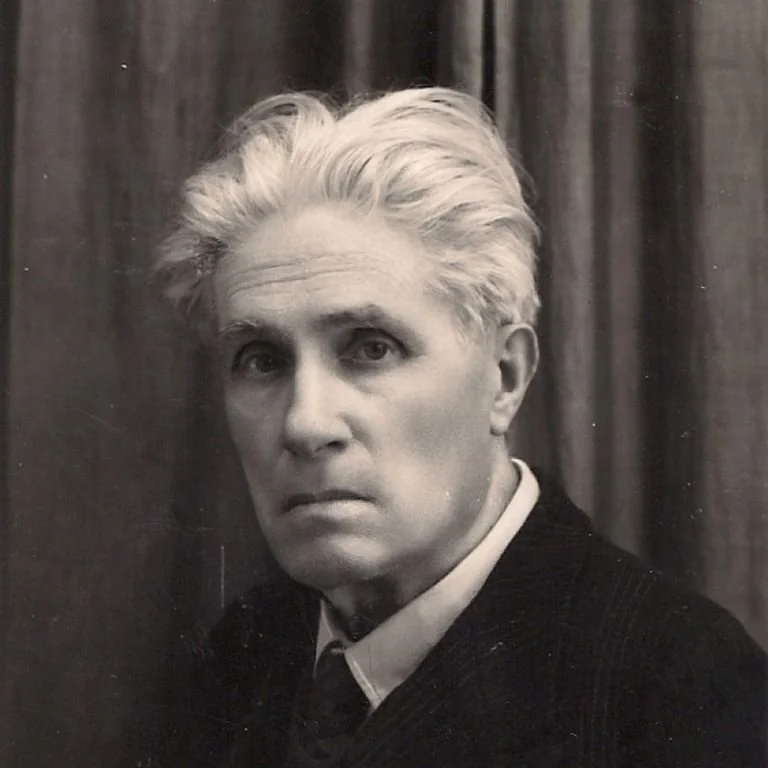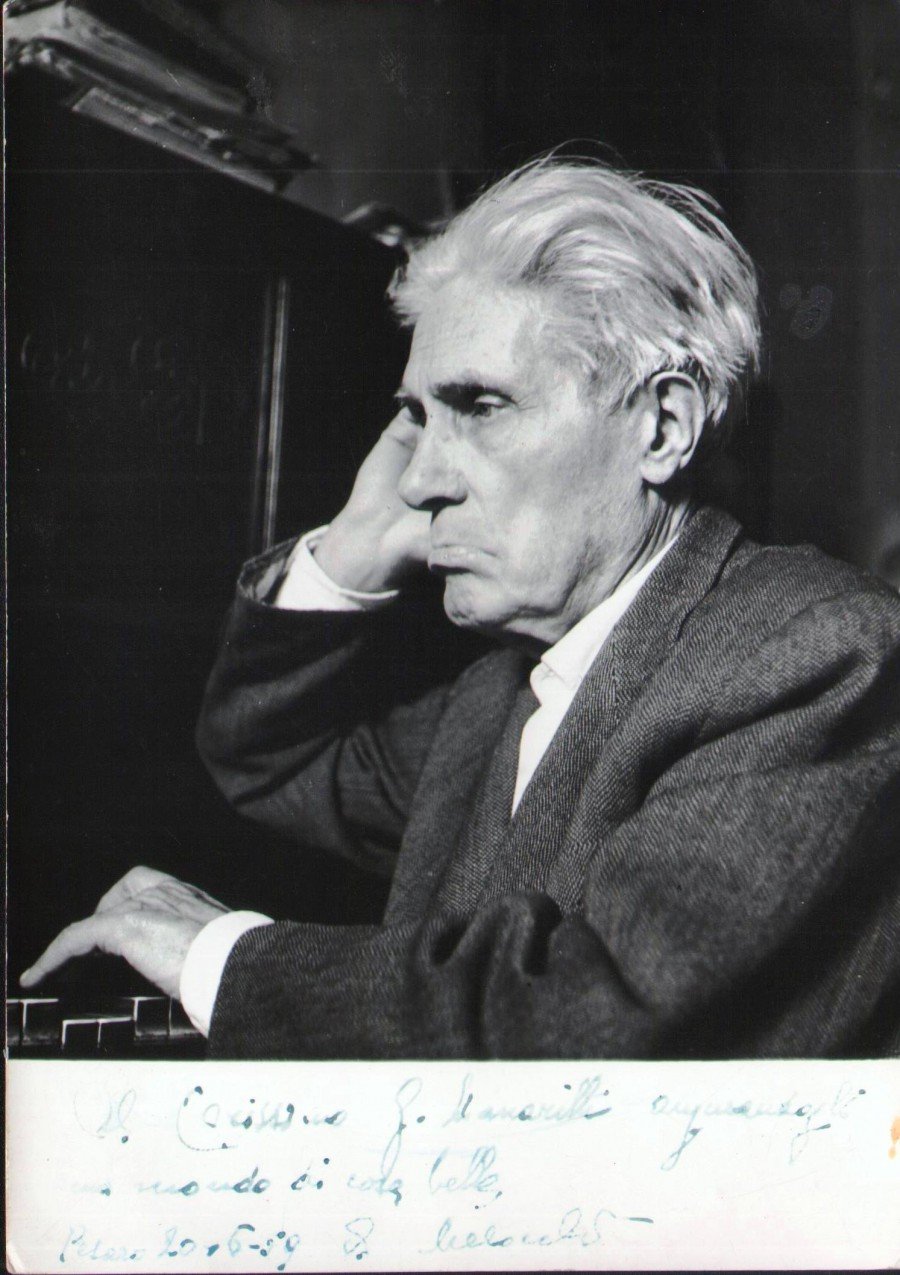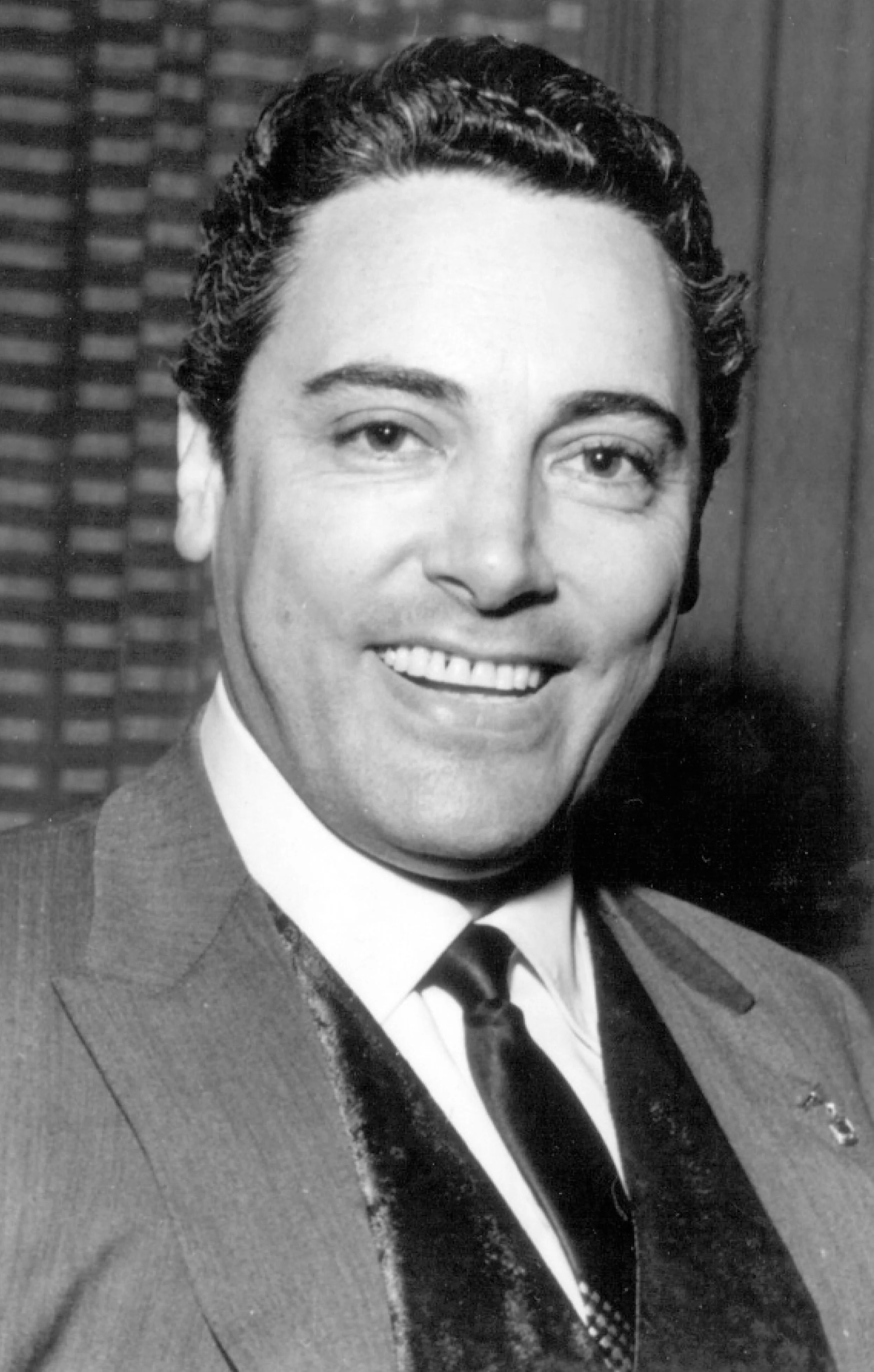Arturo Melocchi
Arturo Melocchi was born on December 9, 1879, in Milan. At a young age, he was accepted into the Milan Conservatory, where he studied piano from 1893 to 1898 under Giuseppe Frugatta. During this time, he achieved notable results, earning special prizes awarded to deserving students and gaining a reputation as a "serious and distinguished" musician. He also attended harmony, counterpoint, and fugue courses under the guidance of Gaetano Coronaro and Michele Saladino. Gifted with a good baritone voice, he later enrolled in the singing class at the Milan Conservatory, then led by Giuseppe Gallignani. His final exam included an aria for baritone from Meyerbeer’s "Dinorah," the sixth vocalize for baritone by Gaetano Nava, Op. 24, the aria “È ver ch’io t’ingannai” from Meyerbeer’s "Fra Diavolo," sight-reading, and questions on the anatomy of the vocal apparatus, teaching, and the best modern and classical vocal literature.
From 1894 to 1900, Melocchi worked as a teacher at the Choral Union of Milan, where he was considered exceptionally intelligent. He was well-cultured, traveled extensively, and spoke several languages. "I speak good English, French, Italian, and Russian," he declared. His student Mario del Monaco confirmed that he spoke English, Spanish, a bit of German, Russian, and Chinese, the latter of which he learned during his three years teaching in Shanghai and Hong Kong.
Shortly before arriving in Pesaro, Melocchi was appointed as a singing teacher at the Milan Conservatory. Zanella, the director of the "Rossini" musical high school in Pesaro, sought a qualified teacher to replace Giuseppe Bracci, who had died after five years of service. At the Milan Conservatory, Zanella met Melocchi and became an immediate supporter of him. In 1912, Melocchi began working at the Conservatory of Pesaro. However, in 1916, he was drafted into the military. During this period, the administration of the "Rossini" music high school abolished his monthly salary for the choral singing school, despite Zanella’s insistence that this measure be avoided.
After completing his military service, Melocchi resumed teaching singing, continuing uninterruptedly until 1941. That year, he was suspended without warning after thirty years of teaching. The "Rossini" musical high school had become the R. State Conservatory of Music, and the direction of the institute had passed from Amilcare Zanella to Riccardo Zandonai. The staff of teachers had to be included in the new state parameters. Following an inspection by Umberto Giordano, Melocchi received a declaration of unsuitability to teach without any explicit justification. His removal from the Conservatory was due to political reasons, as he was anti-fascist. This was confirmed by an official declaration of the National Liberation Committee of the province of Pesaro dated November 3, 1945. Explicit formal clarifications on the reason for his removal, which caused serious financial hardship, were never provided by the city administration. There was only a communication dated February 6, 1946, which alluded to the impossibility of being included in the roles of teachers "due to the reorganization of the Conservatory of Music of Pesaro."
In the meantime, Melocchi’s students supported him. On September 7, 1947, they sent a statement to the then director of the Dante Conservatory, D'Ambrosi, asking for Melocchi’s return to the Conservatory to teach. This movement was successful: the new president of the “Rossini” Foundation, Marcello Scardia, communicated to Melocchi that in the meeting of November 8, 1947, the Council had decided to give him a new teaching position for the year 1947/48, albeit with less favorable economic terms due to the precarious conditions of the institution. Melocchi returned to teaching but only for two years before retiring definitively. Little is known about his final years; it is known that he continued to mentor his students until the end. He died in poor economic conditions, suffering from an incurable disease, in Pesaro Hospital on October 25, 1960.
Many of Melocchi's students had brilliant careers, including tenors Augusto Cingolani, Umberto Chiodo, Roberto Pagliarani (winner of the international competition in Brussels), Ettore Parmeggiani, and Giovanni Pullini; baritone-tenor Africo Baldelli, Antonio Magini (winners of the international competition in Vienna in 1938), Edmondo Grandini, Saturno Meletti, Vincenzo Cecchetelli, Mario Monachesi, Gastone Limarilli, and Angelo Bartoli; basses Guido Santori and Febo Pierbattista; Jiri Wood from the Czech Republic, Giorgio Merighi, and Robleto Merolla. Many of them were winners of international competitions in Florence and at the Costanzi competition. Above all, Mario Del Monaco stood out. Melocchi liked to affirm that most of his students had sung at La Scala, “where you were certainly not permitted to perform unless after a very serious preparation such as the illustrious Maestro Toscanini used to demand.”
Marcello del Monaco
Marcello Del Monaco, the second son of Flora Giachetti and Ettore Del Monaco, was born in Firenze on August 18, 1919, four years after his brother Mario and eleven years before his brother Alberto, in a family with strong musical traditions. His mother, Flora, was the cousin of the famous singer Ada Giachetti, whose connection with Caruso caused a sensation in Italy. Flora was also related to the actor Fosco Giachetti, one of the most famous faces of fascist cinematography.
After some time, the family moved to Cremona and later to Tripoli, where Ettore was sent as a commissioner of the colonial government. Marcello spent his first three years of elementary school in Tripoli. Being brothers in Italy in the first half of the nineteenth century meant an all-encompassing bond, visceral not only because of biology. The four-year age difference allowed Mario to affectionately call his brother "Marcellino" and to establish a unique code of affection made up of ironic phrases.
After three years, a steamship brought the family back to their homeland. In 1928, Ettore Del Monaco reinvented his career, becoming a chief accountant in several prefectures. The family began traveling through Italy, living in Pesaro, Cremona, and finally Treviso. For the brothers, the years in Pesaro marked their adolescence, a time when their talents began to emerge. Mario showed an inclination for painting and figurative arts, while Marcello was drawn to literature and poetry. However, they both shared a passion for music, leading their father to enroll them in the Gioachino Rossini musical college. It was here that the Del Monaco brothers met Arturo Melocchi, a figure destined to have a significant impact on both their lives.
Mario was initially enrolled in violin and later took up singing, while Marcello studied singing and composition. Their father had high hopes for Marcello because of his notable baritone voice. The family's final move was to Treviso. When the war broke out, Marcello enlisted in the military in 1941. A year earlier, his poetic works, titled "Pensieri," were published by Nobili in Pesaro. He was assigned a clerical position in the Civil Engineers, where he met Teresa Rossi, a teacher working as an operator. They married in 1946. At the end of the war, Marcello, on his wife's suggestion, became an elementary school teacher in Treviso. In 1954, with the birth of their daughter Donella, the family built a house on a hill in Montebelluna.
Marcello Del Monaco's post-war career was marked by his dedication to teaching. Although Mario achieved international success as a singer, he did not teach, except for a brief period with Gestone Limarili. However, it was Limarili's insistence that led Marcello to work with him on vocal exercises. The success of this collaboration led to the spontaneous formation of the Del Monaco school, which attracted young singers from across Italy.
In Montebelluna, notable students included tenors Amadeo Zambon, Angelo Mori, Gianfranco Cecchele, Nicola Martinucci, and Oslavio di Credico; sopranos Maria Luisa Carnio and Jolanda Michieli; bass Vito Brunetti; baritones Silvano Carroli and Gianluigi Colmagro; and American contralto Dorothy Fischer. Marcello became known as "the Saint" for his dedication and expertise. His students' letters and postcards document their professional journeys, triumphs, and struggles, reflecting the deep trust they placed in their mentor.
In 1965, Marcello Del Monaco's family moved permanently to Treviso, a city with a passion for theater. Young voices from around the world began to gather for the International Opera Singing Competition, which was named after Toti dal Monte in 1978. Marcello's atelier in via Carrer became a center for young singers to build their careers. The second period of the Del Monaco school in Treviso saw the arrival of tenors Bruno Sebastian, Maurizio Frusoni, and Giuseppe Giacomini; baritones Roberto Caverni and Robert Kerns; Finnish tenor Peter Lindroos; bass Carlo Padoan; and baritone Giovanni Savoiardo.
From France came tenor Jean Petit, along with Neapolitans Marcello Ferraresi and Michele Nardelli and Giuseppe Bianca from Catania. The Venetian tenor Aldo Bottion and Turin's Rolando Ribichesu also studied at the atelier, as did baritone Elia Padovan from Rovigo. Female voices included sopranos Josella Ligi and Rita Lantieri and mezzo-soprano Maria Luisa Nave. Marcello Del Monaco became a reference for Verdi, Puccini, and verismo repertoire. He received a proposal from Shah Reza Pahlavi to open an Italian singing school in Tehran and was requested by the La Scala Theater Academy as a teacher. He also served as an informal consultant for opera agents and theaters and established a preferential link with the 'Gian Battista Viotti' international competition for opera singers in Vercelli.
From 1975, which marked the third and final period of the Del Monaco school, singers from across Europe continued to arrive in Treviso. Tenors Antonio Marcenò, Silvio Eupani, and Corneliu Murgu (destined to become an important Otello) were among those who studied under Marcello. He also taught basses Lorenzo Gaetani and Carlo Striuli and soprano Beatrice Bianco, while Dana and Sue Talley arrived from New York.
The musical gatherings at his brother's house provided a positive distraction for Mario Del Monaco, who officially retired from the stage in 1975 and faced a sad decline due to illness. Mario found some relief in afternoons spent at Marcello's house, discussing singing and interpretation and reminiscing about his extraordinary life. On October 16, 1982, Mario Del Monaco died in Mestre hospital. Marcello found solace in poetry, writing to and about Mario, though it was now a soliloquy.
On June 2, 1982, the President of the Republic awarded Marcello Del Monaco the honor of Knight of the Italian Republic for educational merits. In 1985, the municipality of Breda di Piave named the primary school of Varago after him, and in 1988, the Superintendent of Treviso studies, Antonino Condorelli, awarded Marcello a gold medal of merit posthumously for his dedication "to school, culture, and art." Marcello Del Monaco died suddenly on a rainy evening in March 1984.









